
Featured image credit: David Goldman//Press Association Images
Sport has long been the perfect platform for athletes to make a strong statement about the political world around them.
Watched, and now shared, by millions, a simple gesture has the ability to go down in history books. Take the iconic selfie moment between the North and South Korean gymnasts at this year's Games, or the moment the refugee athletes marched into the Olympic venue for the first time. Modern sport has captured many reactions to political conflict.
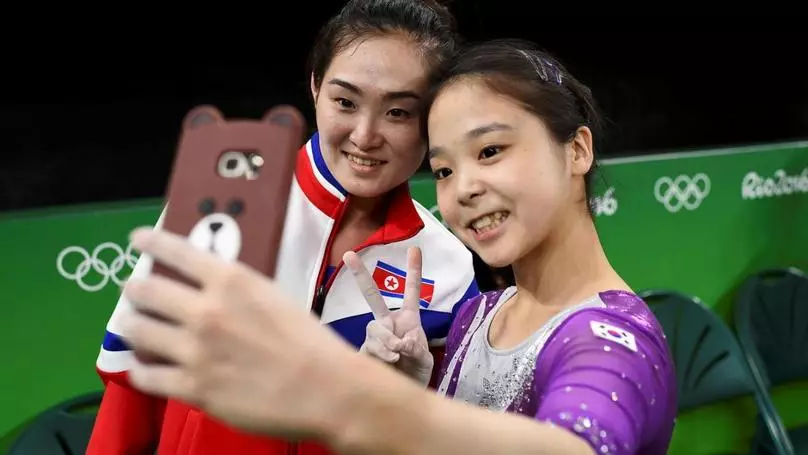
Image credit: Twitter/BOKUNOPICOU
Advert
Before social media, 24-hour sports coverage and camera phones in the crowd capturing everything in between, the Olympics has been the catalyst of many political changes and here is just a few moments that should be remembered.
1900 - Paris
Before 1900, The Games was a man's world. But in Paris, 1900, women were able to participate for the first time in lawn tennis and golf. The acceptance of women in sport paved the way for more female participation in future Games. In 2012, the first female boxers got to compete and Nicola Adams nailed the punches to secure the first Olympic female boxing gold.
1936 - Berlin
Berlin was set to fly the Olympic flag and, for the first time in history, the United States of America and Europe called for the boycott movement because of the host country's abuse of human rights. Although the boycott movement failed to go through, the power of sport came into play and the eyes of the world was on the athletes.
Nazi Germany was using the opportunity to show the world a resurgent Germany. The party had originally promoted the concept of 'Aryan racial superiority' and depicted ethnic Africans as inferior. It took one man to win in front of the world's media to prove the Nazis wrong.
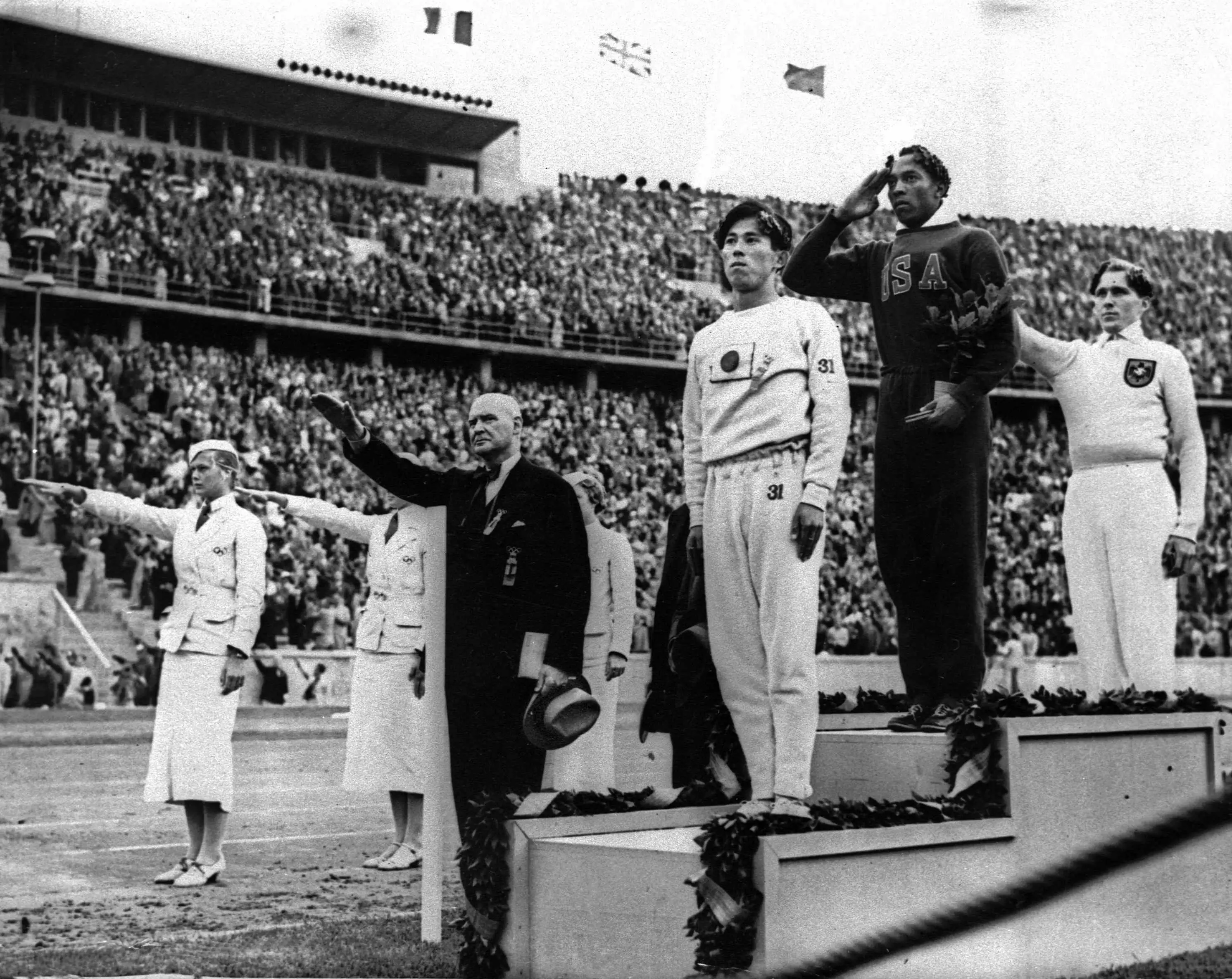
Image credit: Press Association
Advert
With the rise of Nazi Germany embroiling Europe, Jesse Owens, a black athlete from the USA, went on to win four golds at the event - in the long jump, 100 metre sprint, the 200 metre sprint and the 4x100 metre relay. He stood on top of the podium saluting, while Germany's Lutz Long and the volunteers performed the Nazi salute.
Despite Nazi ideology, Lutz and Owens became friends during the long jump and their lap of honour became a symbol of the triumph of sportsmanship over Hitler's dictatorship.
1948 - London
Wheelchair athletes were able to compete for the first time. It was an English doctor, Ludwig Guttmann, who founded the International Wheelchair Games. The idea was to rehabilitate injured veterans of World War II. For the first time in Olympic history, sport was seen as therapy. His invitation to welcome the wounded to compete went on to form the concept of the modern Paralympic Games.
1968 - Mexico
In 1968, at the height of the civil rights movement in the US, black American athletes were encouraged to once again boycott the Games. However, understanding the potential platform to air political issues, African-American sprinters John Carlos and Tommie Smith staged a non-violent protect by raising their fists in a Black Power salute during the national anthem played during their medal ceremony.
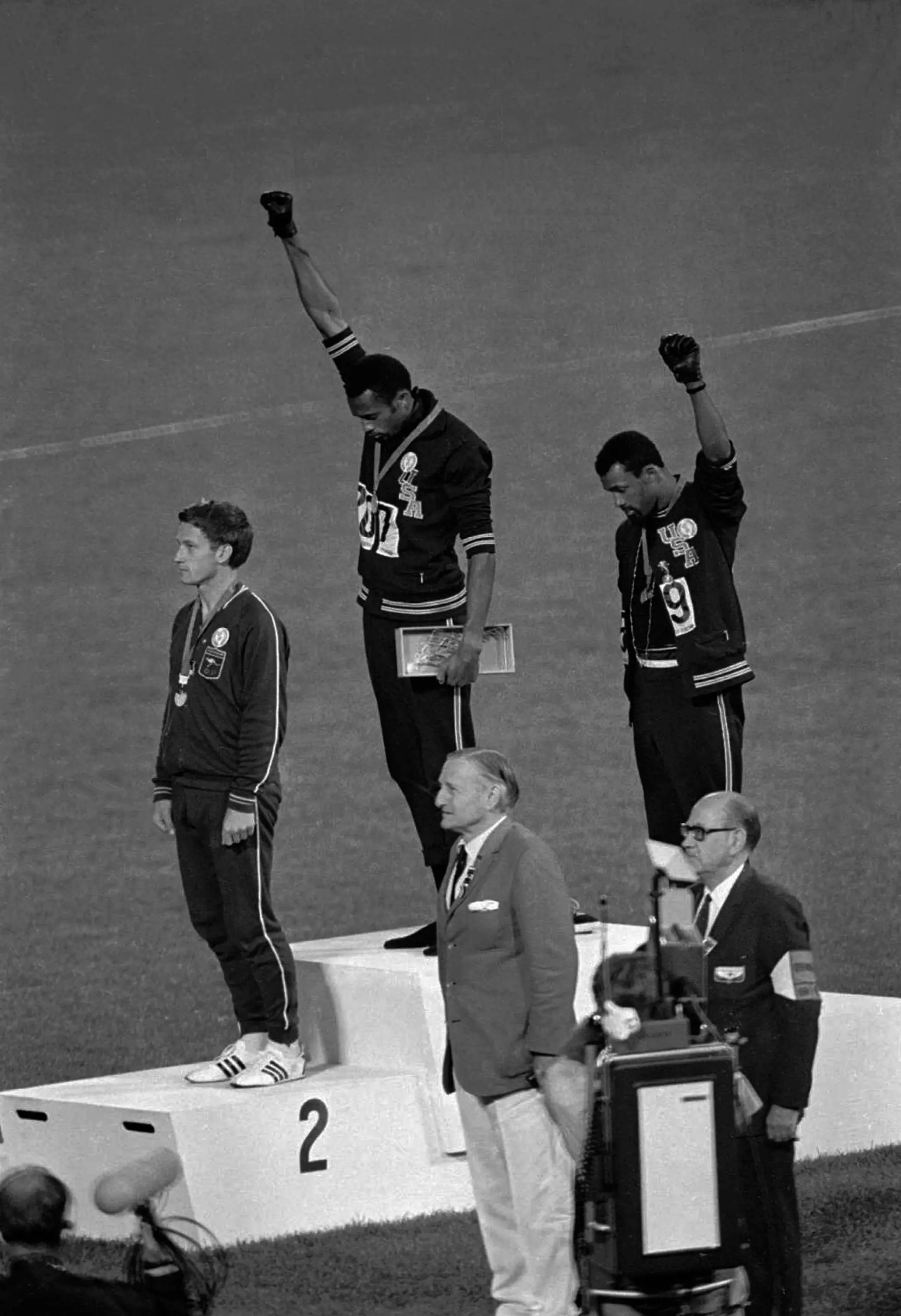
Credit: Press Association
Advert
As a result, the pair were suspended from the Olympic Village but their silent demonstration catapulted the issue onto the international stage.
1972 - Munich
Tensions were high at the Munich Olympic Games in 1972. It was the first time that Germany hosted the Games since 1936, when the Nazis held the event. The Israeli athletes and their trainers were particularly nervous. Many of their family members were murdered in the Holocaust and some of them were survivors of the holocaust.
After the Israeli team returned to the village on September 5, a group of Black September terrorists jumped over the six-foot high fence surrounding the perimeter and entered the Israeli team's block. 11 Israeli athletes were taken hostage and later murdered after a stand-off between German authorities. The Olympics that year continued with extra security. The message of world-wide peace endorsed by the Games was heavily damaged.

Image credit: Press Association
Advert
1980 - Moscow
It was Moscow's turn to host and with the Cold War ongoing, President Jimmy Carter advised US allies to pull their Olympic teams from the Games to object against the Soviet invasion of Afghanistan.
So the US didn't attend the Olympics that summer. Instead, they hosted the Liberty Bell Classic in Philadelphia as an alternative sporting competition and welcomed athletes from countries who supported the boycott.
2000 - Sydney
In a passing moment of showing the world as a united front, North and South Korea marched together for the first time in Sydney's explosive opening ceremony.
Instead of waving separate flags, the North and South Korean athletes wore matching uniforms, joined hands and waved a unification flag that showed a blue map of Korea. Although putting on an integrated front, it was short-lived.
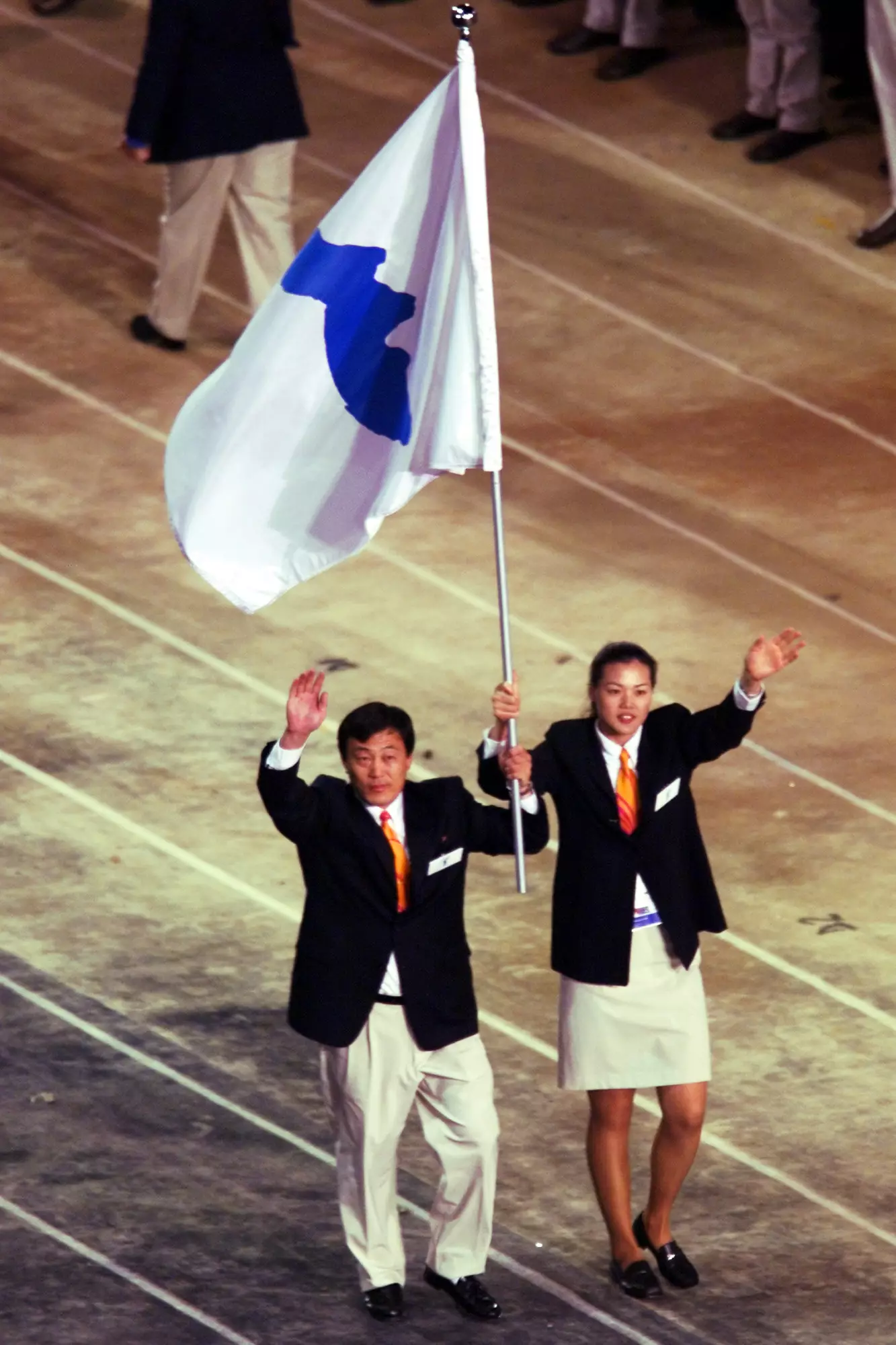
Image credit: Press Association
Advert
2012 - London
Something incredible happened in London four years ago. Not only did Great Britain secure its best medal count in GB Olympic history, it also exceeded expectations to become the most successful Paralympics ever. The stigma and ignorance surrounding modern-day disability was broken down - competitors were seen as athletes and with Channel 4 being the official broadcasters of the Games, it prioritised its efforts to educate the public around disability in sport.
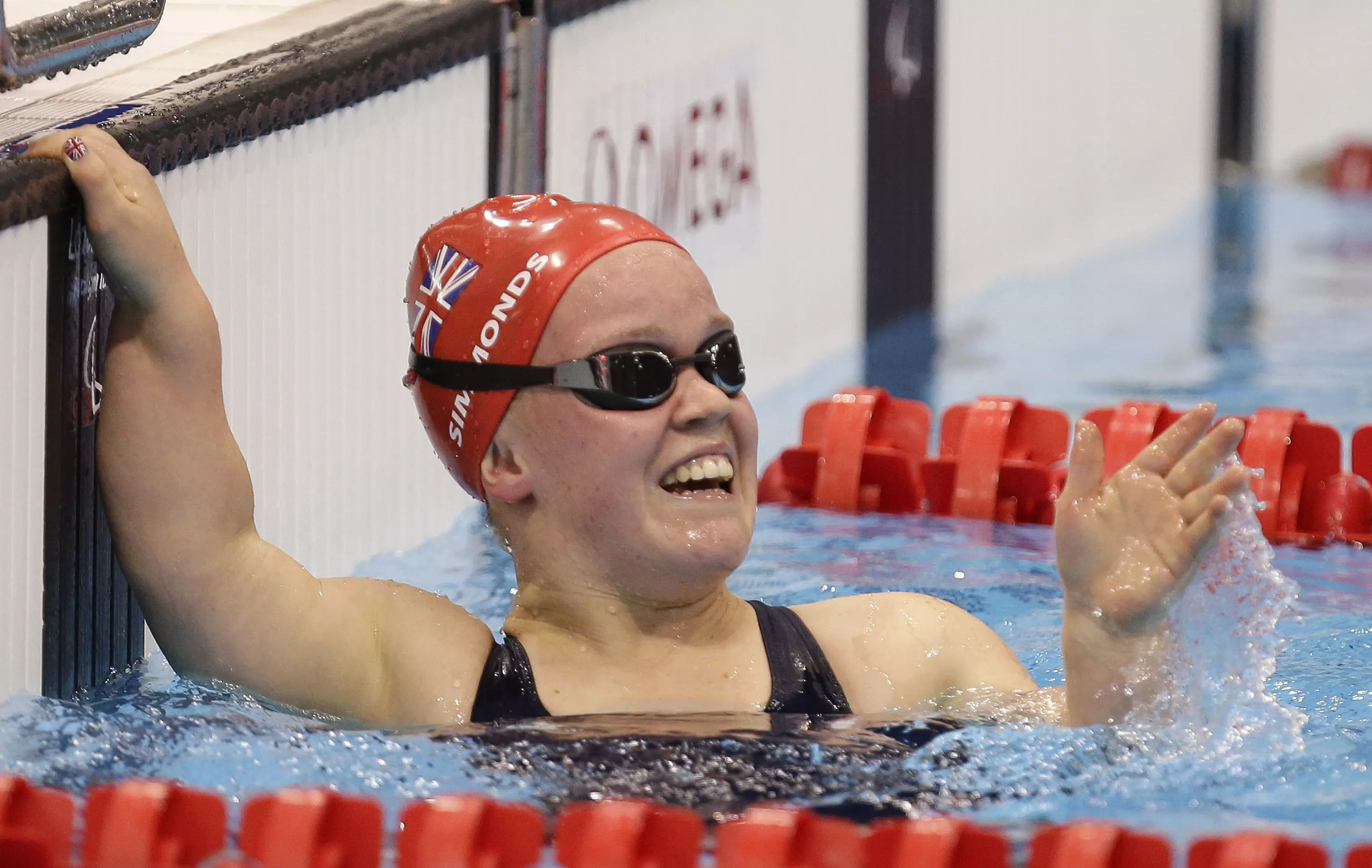
Image credit: Press Association
2016 - Rio
Thankfully it's not just the lack of preparation that will be embroiled into the Rio 2016 Games moments. 10 athletes marched into the opening ceremony as the first ever refugee Olympians. With the Olympics now fully underway, and the Paralympics in the not too distant future, the Rio Olympics is reminding us that it is the athletes that make the Games great.
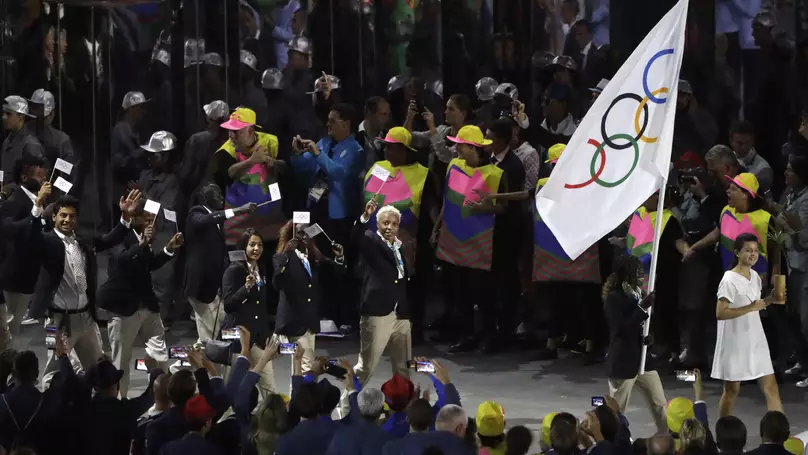
Image credit: Jae C. Hong/Press Association
And there you have it, the Olympic Games is so much more than sport!
Words: Hamish Kilburn
Featured Image Credit: